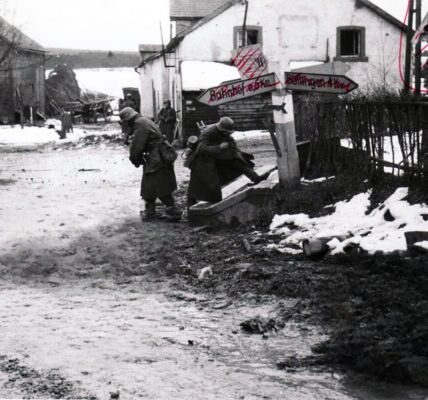
Ministers are being urged to house Channel migrants in camps (Image: Getty)
Home Secretary Yvette Cooper faces growing pressure to house migrants in camps after a bombshell court ruling threw Labour’s asylum accommodation plans into disarray.
Ministers are braced for a surge in legal challenges from councils after Epping Forest District Council was granted a temporary injunction to prevent asylum seekers being housed at the Bell Hotel in Epping, Essex.
Amid rising anger over the use of hotels, Shadow Home Secretary Chris Philp called on ministers to house migrants on former military bases and asylum barges, like the Bibby Stockholm.
Former Home Office minister Damian Green added that the Government should “go back to the idea of camps”.
Security minister Dan Jarvis admitted ministers were drawing up emergency plans to house asylum seekers in case more migrant hotels were ordered to close.
He told Times Radio: “We’re looking at a range of different contingency options following on from a legal ruling that took place yesterday, and we’ll look closely at what we’re able to do.”

Home Secretary Yvette Cooper is facing an asylum accommodation crisis (Image: Getty)
Asked whether other migrant hotels have the proper planning permission, Mr Jarvis said: “Well, we’ll see over the next few days and weeks.
“Other local authorities will be considering whether they wish to act in the same way that Epping (Forest) District Council have.
“I think the important point to make is that nobody really thinks that hotels are a sustainable location to accommodate asylum seekers.
“That’s precisely why the Government has made a commitment that, by the end of this Parliament, we would have phased out the use of them.”
Mr Philp demanded Home Secretary Ms Cooper call an emergency cabinet meeting to draw up plans to deport “every illegal immigration upon arrival”.
He told the Daily Express: “Illegal immigrants who have entered the UK should not be put up in hotels that many Brits couldn’t afford to stay in.
“Every illegal immigrant should instead be immediately deported upon arrival – either back to their country of origin or to a third country like Rwanda.
“This would mean repealing the Human Rights Act for immigration matters. We Conservatives even tabled this approach in Parliament a few weeks ago, but Labour voted against it.
“In the meantime, I do not think hotels should be used.
“Instead, former military sites or barges such as the Bibby Stockholm are much more suitable for accommodating illegal immigrants than expensive hotels costing hard-pressed British taxpayers billions a year.”
Former Home Office minister Damian Green said the Government should “go back to the idea of camps”.
Mr Green, who lost his seat in the general election last year, told the World At One: “What they should now do is actually toughen up the accommodation that we offer people to make it clear that it’s a deterrent as much as anything.
“So, go back to the idea of camps, whether purpose-built Nightingale Hospital-style buildings on parts of the land that the Government owns, or using existing military camps, all those sorts of things, so that is not seen as offensively luxurious by the people who have watched this happen in their communities over the past few years.”
When he was asked about the “difficulties” that have been run into when this has been attempted before, for example at Napier barracks, RAF Scampton, Wethersfield and the Penally camp, he said: “Some of them were genuine, some of them weren’t.
“A lot of the problems are indeed legal problems, where the courts say you can’t keep people there. And I do think the Government is going to have to confront the legal issue if they want to be effective in having a deterrent.”
Sir Keir Starmer’s asylum nightmare intensified on Wednesday as Labour council chiefs confirmed they are amongst those considering legal action.
Tamworth Council said it would look to challenge the use of the Holiday Inn Express in the town, which was a focus of violent disorder during the Southport riots last summer.
Labour councillor Carol Dean, leader of Tamworth Borough Council, said the council did explore similar legal avenues when the Home Office first started using the Holiday Inn Express in Tamworth to house asylum seekers, but did not end up pursuing them.
She said: “I want to be transparent with our community – when the Home Office first began using the hotel in 2022, we did explore similar legal avenues. However, we did not pursue this route at the time because temporary injunctions, while initially granted in other cases nationally, were not ultimately upheld by the courts.
“The situation at Epping Forest represents a potentially important legal precedent, and we are carefully assessing what this might mean for our circumstances here in Tamworth.”
Cllr Paula Basnett, the leader of Labour-ran Wirral council, said: “Like many other local authorities, we have concerns about the Home Office’s practice of placing asylum seekers in hotels without consultation or regard to local planning requirements.
“We are actively considering all options available to us to ensure that any use of hotels or other premises in Wirral is lawful and does not ride roughshod over planning regulations or the wishes of our communities.
“If necessary, we will not hesitate to challenge such decisions in order to protect both residents and those seeking refuge.”
Conservative-run Broxbourne Council in Hertfordshire has said it was taking legal advice “as a matter of urgency”, while Tory-run East Lindsey District Council in Lincolnshire said officers are investigating and “will take appropriate action”.
Reform UK-led councils – West Northamptonshire Council and Staffordshire County Council – also said the authorities would look at the options available after the High Court ruling.
Ian Cooper, leader of Staffordshire County Council, said: “The control and protection of our country’s borders is a national issue, but the impact of central government policy is felt in communities across Staffordshire.”
The Home Office had warned the judge that an injunction could “interfere” with the department’s legal obligations, and lawyers representing the hotel’s owner argued it would set a “precedent”.
Craig Leyland, the leader of East Lindsey District Council in Lincolnshire, said: “We have always been clear to the Government that we stand strongly against the use of hotels in our district by the Home Office for those seeking asylum. We now only have one hotel in such use.”
The Conservative councillor added: “I have followed the case by Conservative-run Epping Forest District Council and yesterday’s judgment with great interest.
“I have asked officers to investigate and understand this case and will take appropriate action once we understand if there are any similarities that we can act on.”




